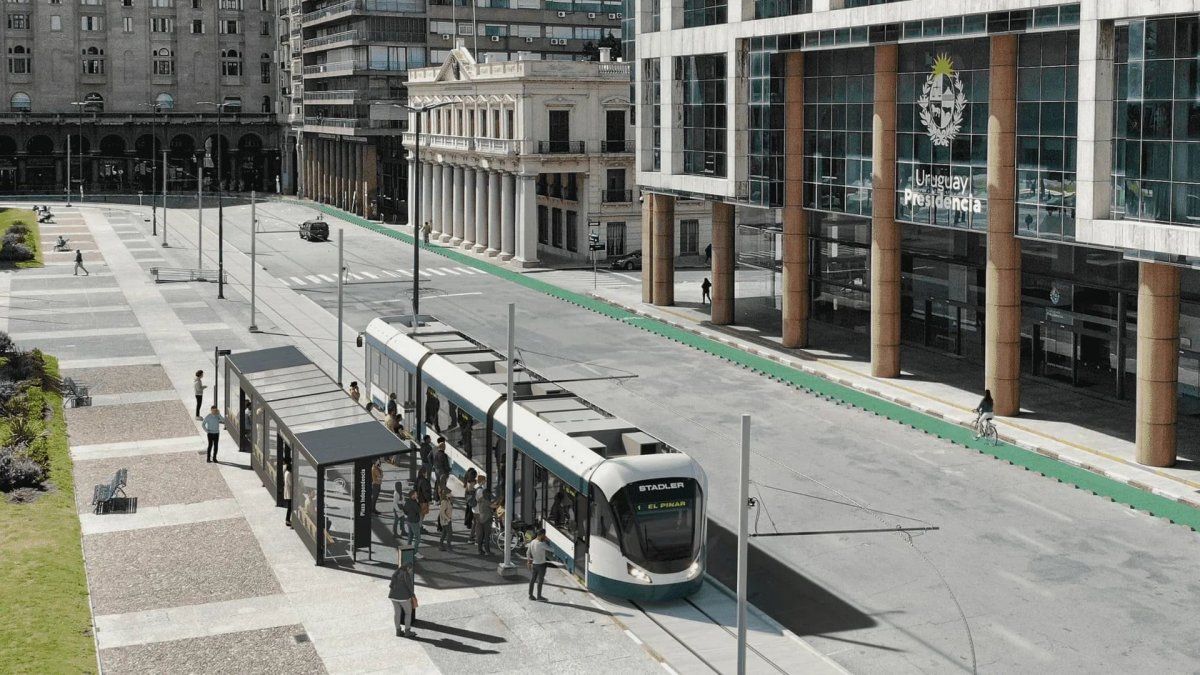The project that seeks to build a tram train in the metropolitan area of Uruguay to improve connectivity between Montevideo and cannelloni could cost around 500 million dollars, so private companies will seek to obtain international financing. Likewise, the promoters believe that the initiative will begin to “move a little faster.”
The company director Saceem, Alejandro Ruibal, explained on Radio Monte Carlo that “a first study of pre-feasibility quite generic” and that “now we have to start going down further to land, but we need to go back and forth with the municipalities.” In this sense, a few weeks ago meetings began between the Ministry of Transportation and Public Works (MTOP) and the departmental governments of Montevideo and Cannelloni, although the construction of the tram train would not begin until 2025, after the election year.
“We believe that now we are going to start moving forward a little faster,” considered the director of one of the companies promoting the private initiative that the government announced more than a year ago. Likewise, Ruibal assured that it is “a structuring project that allows us to solve another series of things.” “It will take a few months, but it is a very necessary project and we must give it seriousness, time and all the necessary discussions, but moving forward,” he said.
Regarding the investment necessary to carry out the ambitious project of a new means of transportation in the metropolitan area, the businessman announced that they are talking about a figure around 500 million dollars, although “it is an estimate” that It will be adjusted as the railway route is specifically defined.
“It is a very important work, energizing and very job-generating,” said Ruibal. “Our proposal is to use the PPP law that allows us to transfer risk to the private sector and we can obtain international financing to do the work,” he assured.
Regarding the impact of the project, the director of Saceem stated that “it will be a transformation and complementation” of the current transportation system, at the same time as “something very good for transportation companies and a help for renew mobility”.
The operation could be left in the hands of the bus companies
Luis Pelloni, representative of Stadler Rail for Uruguayone of the three companies that, together with Saceem and Stiller, make up the private consortium that would carry out the tram train or Tren Tram, referred to the controversy regarding the effects that the new means will have on the current transportation system. “This comes to add value to the city, to end the flat market or flat market,” he said, in dialogue with Radio Carve.
Regarding the impact on bus routes, Pelloni said that “naturally a review will have to be made. redistribution of lines and complement all services”, but that this does not necessarily harm transportation; At the same time, it directly benefits the passenger by presenting greater alternatives for routes and means of transportation.
In any case, the Uruguayan representative of Stadler Rail clarified that private companies never considered operating the new service. “The natural thing when a new transportation system is implemented, in this case rail, is that the bus companies the same ones that take charge of the operation. They will have to prepare due to the lack of knowledge of the sector, but we will be in charge of helping them with engineering and everything that comes with managing a system different from that of buses, due to the impact of technology on safety, reliability and traceability,” he explained.
Source: Ambito




